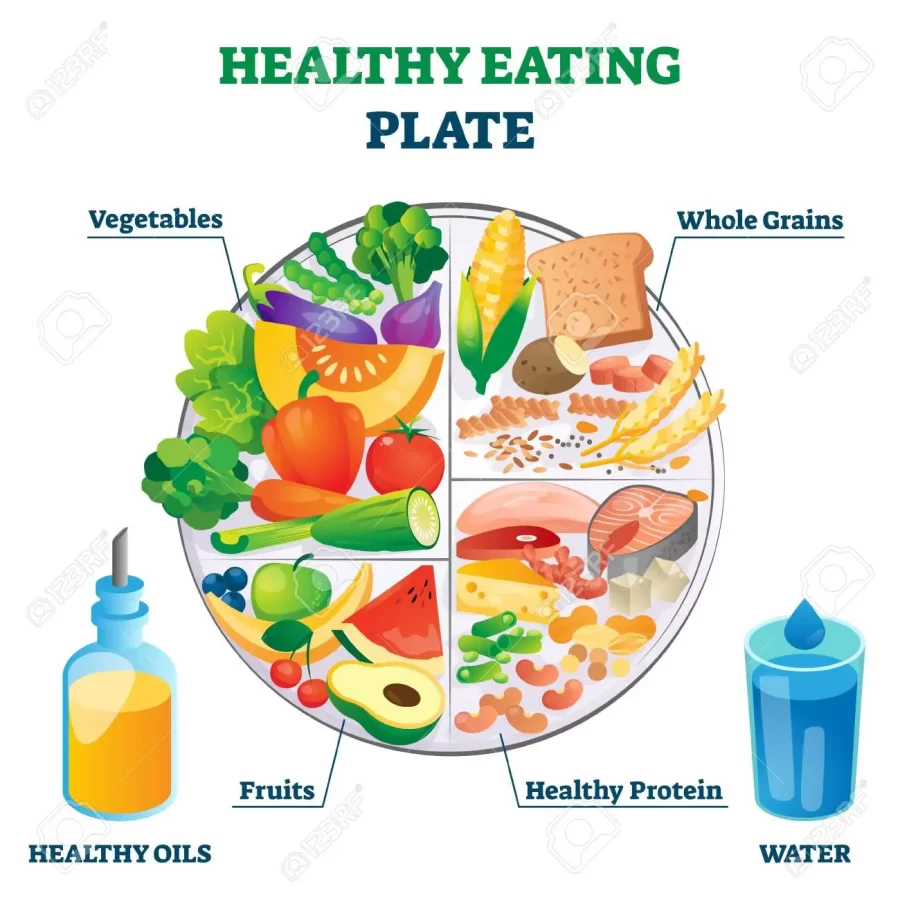Harnessing the Power of the Harvard Diet to Optimize Health and Well-being
Prof. Aécio D’Silva, Ph.D
AquaUniversity
Discover the transformative potential of the Harvard Diet, a scientifically backed eating approach that emphasizes nutrient-rich foods. Explore how this diet can improve your overall health, support weight management, and reduce the risk of chronic diseases.
In the realm of nutrition, the Harvard Diet has emerged as a popular and evidence-based approach to optimize health and well-being. Developed by nutrition experts at Harvard University, this eating plan emphasizes the consumption of nutrient-dense foods while minimizing processed and unhealthy options. In this article, we delve into the principles and benefits of the Harvard Diet, shedding light on how it can revolutionize your relationship with food and support a healthier lifestyle.
Understanding the Harvard Diet: Principles and Guidelines
The Harvard diet is a healthy eating plan that is based on the latest research on diet and health. The diet emphasizes eating plenty of fruits, vegetables, whole grains, and healthy fats while limiting processed foods, red meat, and sugary drinks.
Here are some of the key features of the Harvard diet:
- Eat plenty of fruits and vegetables. Fruits and vegetables are packed with nutrients that are essential for good health. They are also low in calories and fat, making them a good choice for weight loss or weight maintenance.
- Choose whole grains over refined grains. Whole grains are a good source of fiber, which can help you feel full and satisfied after eating. They are also a good source of vitamins and minerals.
- Eat healthy fats. Healthy fats, such as those found in avocados, olive oil, and nuts, can help you lower your risk of heart disease and stroke.
- Limit processed foods. Processed foods are often high in unhealthy fats, sugar, and sodium. They can also be low in nutrients.
- Drink plenty of water. Water is essential for good health. It helps your body function properly and can help you feel full. I personally drink at least 2 liters divided during the day into 4 servings of 500 ml. The first portion is the first thing I take after waking up.
The Harvard Diet focuses on a balanced and varied intake of whole foods that provide essential nutrients for optimal health. It emphasizes the following key principles:
Plant-based Foundation: The Harvard Diet encourages the consumption of a wide variety of fruits, vegetables, whole grains, legumes, and nuts. These plant-based foods are rich in fiber, vitamins, minerals, and antioxidants, promoting overall health and reducing the risk of chronic diseases.
Healthy Fats: The diet emphasizes the inclusion of healthy fats, such as those found in olive oil, avocados, and nuts. These fats provide essential fatty acids and contribute to heart health, cognitive function, and overall well-being.
Balancing Macronutrients: The Role of Protein and Carbohydrates
The Harvard Diet recognizes the importance of balancing macronutrients to support optimal health. It suggests the inclusion of high-quality protein sources, such as lean meats, poultry, fish, legumes, and dairy products, while minimizing the consumption of processed meats. Additionally, the diet promotes the consumption of complex carbohydrates, such as whole grains, which provide sustained energy and fiber.
Portion Control and Mindful Eating
Another key aspect of the Harvard Diet is mindful eating and portion control. By paying attention to hunger and fullness cues, individuals can better manage their food intake and prevent overeating. This approach encourages a more mindful and intuitive relationship with food, promoting healthier choices and balanced eating patterns.
The Benefits of the Harvard Diet
The Harvard Diet offers numerous benefits for overall health and well-being. Its emphasis on nutrient-dense foods provides essential vitamins, minerals, and antioxidants, supporting optimal bodily functions and reducing the risk of chronic diseases, such as heart disease, diabetes, and certain types of cancer. Furthermore, the diet’s focus on balanced macronutrients and portion control can aid in weight management and support sustainable weight loss.
The Harvard diet has been shown to have a number of health benefits, including:
- Reduced risk of heart disease.
- Reduced risk of stroke.
- Reduced risk of type 2 diabetes.
- Reduced risk of some types of cancer.
- Weight loss or weight maintenance.
To conclude, the Harvard diet is a healthy and balanced eating plan that is based on the latest research on diet and health. The diet emphasizes eating plenty of fruits, vegetables, whole grains, and healthy fats while limiting processed foods, red meat, and sugary drinks. The Harvard diet has been shown to have a number of health benefits, including reduced risk of heart disease, stroke, type 2 diabetes, some types of cancer, and weight loss or weight maintenance. If you are looking for a healthy and balanced eating plan, the Harvard diet is a good option. It is based on sound scientific principles and has been shown to be effective in improving your health, longevity and avoiding neurodegeneration.
References:
References:
- 478-Psalm 23 breathing techniques to improve your mental health and well-being
- The Harvard Healthy Eating Plate: https://www.hsph.harvard.edu/nutritionsource/healthy-eating-plate/
- Harvard Study Reveals 4 Diets Proven to Extend Life: https://nypost.com/2023/01/10/harvard-study-reveals-4-diets-proven-to-extend-life/.
- The Harvard Medical School 6-Week Plan for Healthy Eating: https://www.health.harvard.edu/nutrition/the-harvard-medical-school-6-week-plan-for-healthy-eating



